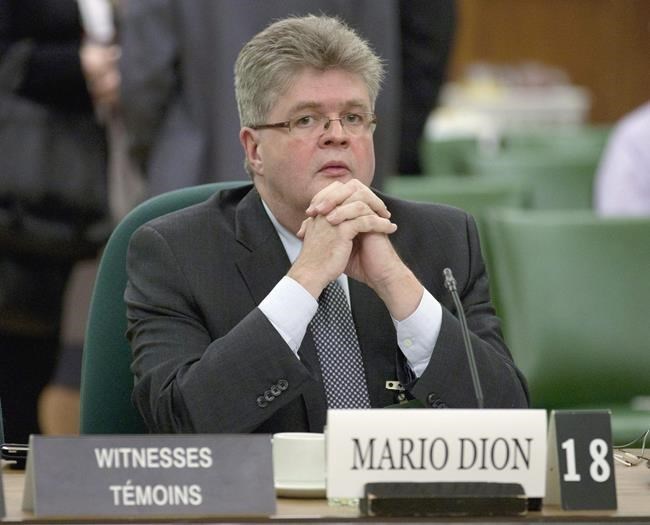OTTAWA — The federal government has remained without a conflict-of-interest and ethics watchdog for more than six months — a vacancy that the most recent commissioner says is putting investigations on hold and could allow violations to go unnoticed.
Mario Dion retired in February after serving as the last permanent conflict-of-interest and ethics commissioner.
A longtime staffer in that office, Martine Richard, took on an interim role in April. But she resigned within weeks because of controversy over the fact she is the sister-in-law of Intergovernmental Affairs Minister Dominic LeBlanc.
Investigations that would normally be conducted by a commissioner are on pause until a permanent replacement is found.
Dion said the role serves as a good safeguard to detect corruption, and Canadians should care that the instruments it has are being used.
"It's a little bit like judicial appointments. If you don't appoint judges, it will be hard to deliver justice," Dion said in an interview.
"So it means that things can go essentially unpunished and unnoticed for a period of time until a new person has been appointed."
This is the longest amount of time Canada has gone without a commissioner since the current version of the role was created in 2007, following the passage of the Conflict of Interest Act.
Dion, who told The Canadian Press he is currently helping with the hiring process, said it's not surprising that a candidate hasn't been chosen yet.
The field is narrow and few people would qualify for the job, or even want it, he said.
Under the Parliament of Canada Act, the commissioner must be a former judge, a former Senate ethics officer, a former ethics commissioner or a former member of a federal or provincial board, commission or tribunal who has relevant experience.
Dion noted the provinces and territories all have ethics watchdogs in place: "The federal level is the only level at this point in time who doesn't have any ethics commissioner."
Without a commissioner, a backlog of investigations can develop and Dion said the more time passes, the more difficult it can be to compile evidence related to a complaint.
"So (investigations) are not dead. It's not disappeared. But it's not being taken care of when it should be," he said.
The Office of the Conflict of Interest and Ethics Commissioner wouldn't say if any investigations are currently on hold.
It added in a statement that all investigations are conducted in private until a report is completed, in accordance with the law.
The Privy Council Office, which is tasked with appointing a commissioner, said someone will be appointed by the Governor in Council in due course.
Dion said several candidates have contacted him to find out more about the position and he is extending all the help he can so that the position can be filled as soon as possible.
Throughout Dion's tenure, he found Trudeau and several of his cabinet ministers had broken ethics rules.
That includes Trade Minister Mary Ng, who failed to recuse herself when her office awarded a contract to one of her friends.
And MP Greg Fergus, parliamentary secretary to the Prime Minister, who wrote a letter in support of a TV channel's application to the Canadian Radio-television and Telecommunications Commission. Politicians are not to write letters of support to quasi-judicial tribunals like the CRTC, given their government roles and the influence they have.
LeBlanc was found to have breached conflict-of-interest rules in 2018, when he was fisheries minister, for approving a lucrative fishing license for a company run by a family member.
In 2021, then-finance minister Bill Morneau also breached conflict-of-interest rules by not recusing himself when the government awarded a contract to WE Charity, which Morneau had ties to.
And Trudeau was the first sitting prime minister to violate the act when he accepted a trip to the Aga Khan's private island in 2017. Dion chastised him again in 2019 over his role in the SNC-Lavalin scandal.
This report by The Canadian Press was first published Aug. 15, 2023.
Mickey Djuric, The Canadian Press




